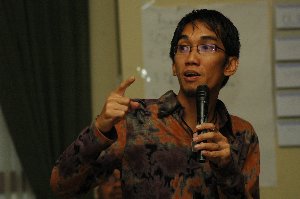The United Nations General Assembly Special Session on the World Drug Problem (UNGASS) was held in New York on June 8-10, 1998. It was a disappointing event. No evaluation of current repressive drug policies took place whatsoever. It was devoted to, as a New York Times editorial phrased it, "recycling unrealistic pledges". Originally, Mexico had called to convene an UN General Assembly Special Session (UNGASS) on drugs aimed to create a moment of global reflection, ten years after the adoption of the third UN anti-drugs convention, the Vienna Convention of 1988. The Vienna Convention had established stricter obligations to criminalize all aspects of cultivation, production, distribution and possession of illicit drugs in comparison to the previous 1961 and 1971 conventions.
The main objectives of the 1998 UNGASS were to eliminate or significantly reduce the illicit cultivation of coca, cannabis and opium poppy, as well as the illicit manufacture and trafficking of synthetic drugs, and achieve significant and measurable results in the field of drug demand reduction, by the year 2008.
Antonio Maria Costa, referred to “encouraging progress distant goals in respect to” towards still the 2008 targets. While one might have agreed that the goals were still distant, the conclusion that there was encouraging progress could not be substantiated. Cultivation of coca and opium poppy as well as the supply of cocaine and heroin showed fluctuations, but no indications pointed at any sustainable decline. The supply of cannabis and synthetic drugs had even increased. Nonetheless, the goals and targets of the UNGASS were simply re affirmed. The result was a distorted picture of virtual progress.
In 2003 there were some examples of encouraging progress, especially in the field of harm reduction. A reduction in the number of drug-related deaths and a slowing down of the spread of HIV/AIDS and other diseases as well as a better variety of treatment options available were clearly apparent in some parts of the world. However, in spite of the direct contribution in terms of alleviating human suffering, this encouraging progress was considered problematic by the fierce defenders of zero-tolerance. Instead of applauding these positive developments, attacks were made during the Mid-Term Review to condemn harm reduction and to turn the clock back. Even on established successful interventions, such as needle ex change and methadone treatment, no basic agreement could be found.
Consequently, more controversial drug control measures based on harm reduction may be considered in a negative light. As is now well documented, needle ex change, methadone treatment, user rooms, etc. have a scientifically con firmed positive impact in particular on reducing drug-related blood-borne diseases such as HIV/AIDS and hepatitis.
In October 2007 to 2 November 2007, Macau SAR, China "Beyond 2008"
Regional Civil Society Consultation for East and South East Asia and the Pacific was held. The aim of this consultation is to gather NGO ideas and experience for the UNGASS review. This consultation meeting is part of preparation for design UNGASS 2008.
The consultation process for “Beyond 2008” is at two levels. There will be nine regional consultations, which will be held between September 2007 and February 2008, followed by an international consultation in Vienna in July 2008. These nine regions are
Each regional consultation is intended to elicit the experience and ideas of a representative sample of NGOs from that region. The results will be brought to the international consultation in Vienna and will contribute to the documents to be submitted to the CND in 2008 and 2009. The regional consultation is the most important mechanism for gathering qualitative information from a representative sample of NGOs working in a particular region.
Recommendations from East and South East Asia and the Pacific region meeting;
-Integration of human rights
-Evidence driven responses – what works versus what is popular
-Recognition of exceptionality of HIV/AIDS
-Role of civil society in complementing government and UN efforts
-Link UNGASS processes (HIV, drugs, children)
-Meaningful involvement of people who use drugs
We can’t let UNGASS 2008 repeat the same mistake of UNGASS 1998. We as Civil Society and PUD Activists must unify our voice to reform it. IF not we lose our chance for the next 10 years to liberate us from a policy that has been prove failed.
Compile by: Fredy
Reference:
· The UNGASS Evaluation Process evaluated- Tom Blickman and Dave Bewley-Taylor
· Transnational institute-article UN General Assembly Special Session (UNGASS) 1998
· “Beyond 2008” East and South East Asia and the Pacific region-Participant booklet
· NOT SO SILENT PARTNERS NGO Contributions to the 1998 UNGASS targets at the 2008 CND By Pascal Tanguay (AHRN) on behalf of YCAB and IFNGO
Wednesday, May 7, 2008
UNGASS on Drugs Problem1988: “A Failure of Policy”
Subscribe to:
Post Comments (Atom)

No comments:
Post a Comment